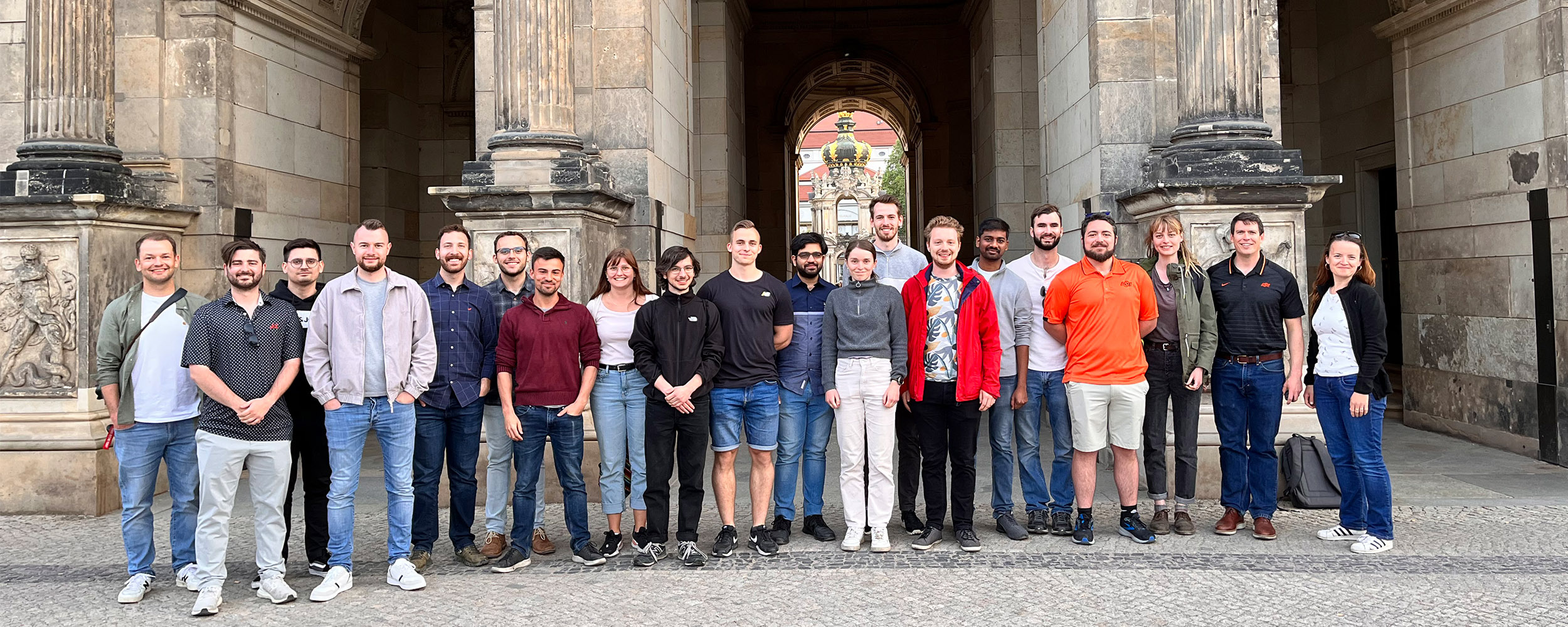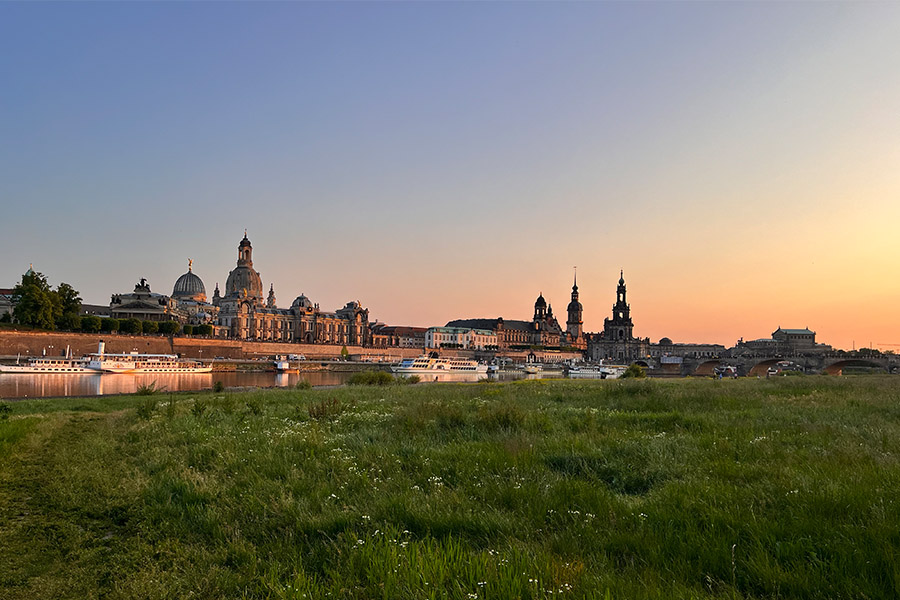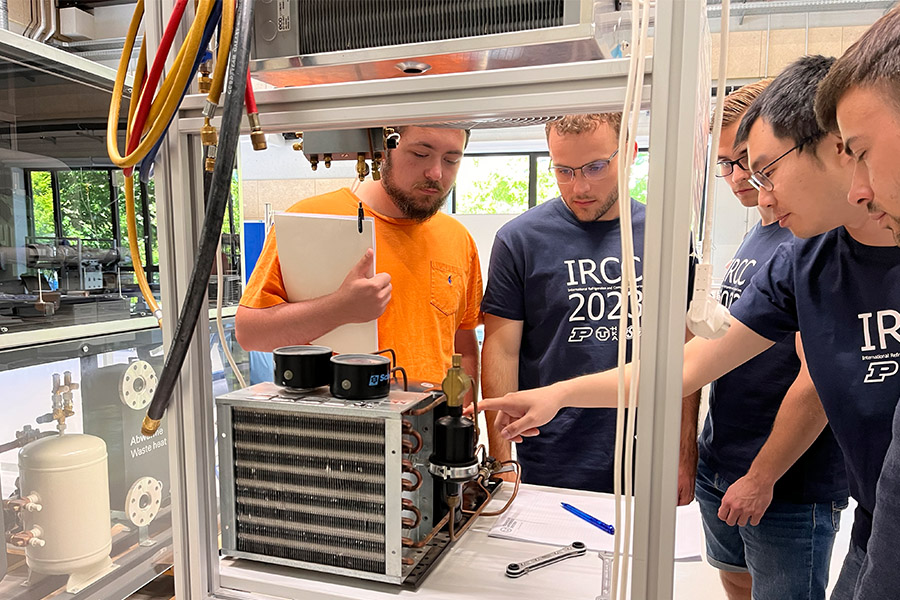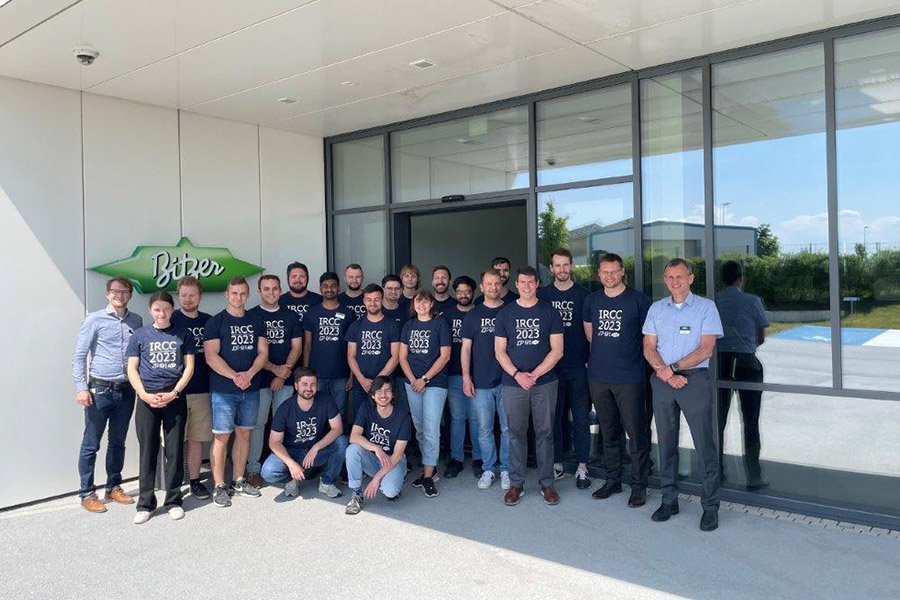
OSU students attend refrigeration and compressor conference in Germany for exchange program
Friday, June 30, 2023
Media Contact: Kristi Wheeler | Manager, CEAT Marketing and Communications | 405-744-5831 | kristi.wheeler@okstate.edu
Dr. Craig Bradshaw, director of the Center for Integrated Building Systems, traveled with students from Oklahoma State University and Purdue University's Herrick Laboratories to Germany this summer as part of an exchange course called the International Refrigeration and Compressor Course (IRCC).
It connected students from the U.S. with students from Technische Universität (TU) Dresden and Karlsruhe University of Applied Sciences in Germany where they could study research topics. The course has multifaceted benefits to participants. The students involved have a chance for a unique collaborative experience to gain different cultural perspectives and are exposed to different styles of research.
In the first week of the course — hosted by Technische Universität Dresden, Karlsruhe University of Applied Sciences and Bitzer’s Schaufler Academy — the students had a chance to learn about the fundamentals of refrigeration technology, gain hands-on experience performing practical experiments and engage with industry members.
Students attended lectures and lab practicals at Technische Universität Dresden in
the first half of the week, located in old East Germany. They went to social events
as a group, including a hike through the woods to a beautiful, tucked away, biergarten
(or beer garden) for one of the events. They also experienced city tours, including
a costumed historical tour toward the middle of the week and then traveled by train
ride to Karlsruhe, in old West Germany, where they visited the university, performed
more lab practicals, toured the city and were able to tour Bitzer’s facilities in
Tübingen.
“The IRCC is an immersive cultural and technical experience,” Bradshaw said. “The residential weeks are like a summer camp filled with social events, excursions with industry partners with a theme of energy and sustainability. The students absolutely love it. I have yet to hear from any student that this wasn’t their favorite course they have ever taken.”
Kyle Shepard, one of the attending students from OSU, recommends the IRCC course for any student that may be interested. He calls it a “once-in-a-lifetime opportunity.”
“I love going to this course,” Shepard said. “It was a ton of fun just to get out of the country a little bit and stretch my legs a bit from doing just thesis work. The week pushes you a little bit, but it’s still a ton of fun. It was great getting to know different people and explore a new place.”
Shepard noted that he had heard one difference in background tends to be that American education focuses on calculations and models, and German education leans heavier on theory and concepts. While the week did provide new skills to acquire and different perspectives to gain insights, Shepard’s personal experience was a bit deeper.
In a world that can easily feel polarized, what he felt was most eye-opening was that,
under the surface, he felt that everyone was relatively the same. Regardless of what
preconceived notions anyone may have going into the course, Shepard said he could
see more similarities than differences among the students, making it feel more like
a small world in this HVAC engineering community.
“Going there and meeting them was kind of just like going to high school or college for the first time,” Shepard said. “When you meet all these new people in a new place, there are so many different personalities, and people, and backgrounds, and motivations as to why people do things. It’s the same thing anywhere else. People are people. We all enjoy having fun. We all enjoy what we do as engineers.”
Broadly speaking, the point of the course is to promote new ways of thinking in their community. While they might find a shift in perspective from making new connections across the world, students are given another challenge to change their view.
They are assigned a theoretical project meant to push their knowledge. Shepard from OSU, Niklas Vogel from Hochschule Karlsruhe and Justin Grolik from TU Dresden were assigned a theoretical project of designing an ice rink in Dubai. The point of these projects is to get the students to be creative and think outside of the box; to push them to think of completely new designs in an attempt to break the bounds of what they know about how HVAC systems work.

The students will spend the summer working long-distance with their international colleges to complete their theoretical design projects. The course will be concluded in August with a second week where the students who met in Germany will gather in the U.S. at Purdue University to report their results. If their concepts work, their designs will be considered successful.


